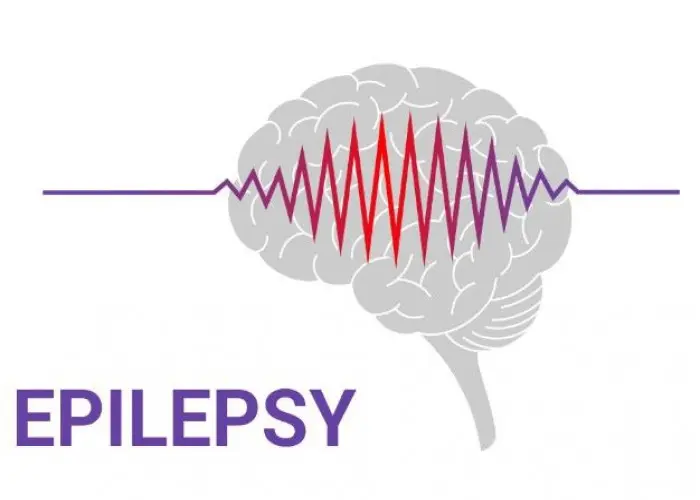 Welcome
Welcome
“May all be happy, may all be healed, may all be at peace and may no one ever suffer."
Urinary tract infection (UTI)

A urinary tract infection (UTI) is a common infection that affects the urinary system, including the bladder, urethra, and kidneys. UTIs can be caused by bacteria or other pathogens that enter the urinary tract and multiply, leading to inflammation and possible damage to the urinary system.
Symptoms of UTI can vary depending on the part of the urinary system that is affected but may include painful or frequent urination, cloudy or strong-smelling urine, lower abdominal pain, and fever. In more severe cases, UTIs can lead to kidney infections or sepsis.
Diagnosis of UTI typically involves a urine test to check for the presence of bacteria or other pathogens. Treatment for UTI usually involves antibiotics to kill the bacteria causing the infection. Pain relief medication can also be prescribed to alleviate symptoms such as pain or fever.
Prevention of UTIs includes staying hydrated, urinating frequently, wiping from front to back after using the toilet, avoiding irritants such as perfumed products in the genital area, and taking appropriate precautions during sexual activity.
The prognosis for UTIs is generally good with prompt treatment, although in some cases, the infection can become severe and cause complications. It is important to seek medical attention if you suspect you may have a UTI, particularly if you experience symptoms such as fever or pain in the upper back or sides, which may indicate a more serious infection affecting the kidneys.
Research Papers
Disease Signs and Symptoms
- Burning during urination
- Kidney pain
- A strong, persistent urge to urinate
Disease Causes
Urinary tract infection (UTI)
Urinary tract infections typically occur when bacteria enter the urinary tract through the urethra and begin to multiply in the bladder. Although the urinary system is designed to keep out such microscopic invaders, these defenses sometimes fail. When that happens, bacteria may take hold and grow into a full-blown infection in the urinary tract.
The most common UTIs occur mainly in women and affect the bladder and urethra.
- Infection of the bladder (cystitis). This type of UTI is usually caused by Escherichia coli (E. coli), a type of bacteria commonly found in the gastrointestinal (GI) tract. However, sometimes other bacteria are responsible.
- Sexual intercourse may lead to cystitis, but you don't have to be sexually active to develop it. All women are at risk of cystitis because of their anatomy — specifically, the short distance from the urethra to the anus and the urethral opening to the bladder.
- Infection of the urethra (urethritis). This type of UTI can occur when GI bacteria spread from the anus to the urethra. Also, because the female urethra is close to the vagina, sexually transmitted infections, such as herpes, gonorrhea, chlamydia and mycoplasma, can cause urethritis.
Disease Prevents
Urinary tract infection (UTI)
You can take these steps to reduce your risk of urinary tract infections:
- Drink plenty of liquids, especially water. Drinking water helps dilute your urine and ensures that you'll urinate more frequently — allowing bacteria to be flushed from your urinary tract before an infection can begin.
- Drink cranberry juice. Although studies are not conclusive that cranberry juice prevents UTIs, it is likely not harmful.
- Wipe from front to back. Doing so after urinating and after a bowel movement helps prevent bacteria in the anal region from spreading to the vagina and urethra.
- Empty your bladder soon after intercourse. Also, drink a full glass of water to help flush bacteria.
- Avoid potentially irritating feminine products. Using deodorant sprays or other feminine products, such as douches and powders, in the genital area can irritate the urethra.
- Change your birth control method. Diaphragms, or unlubricated or spermicide-treated condoms, can all contribute to bacterial growth.
Disease Treatments
Antibiotics usually are the first line treatment for urinary tract infections. Which drugs are prescribed and for how long depend on your health condition and the type of bacteria found in your urine.
Simple infection
Drugs commonly recommended for simple UTIs include:
- Trimethoprim/sulfamethoxazole (Bactrim, Septra, others)
- Fosfomycin (Monurol)
- Nitrofurantoin (Macrodantin, Macrobid)
- Cephalexin (Keflex)
- Ceftriaxone
The group of antibiotic medicines known as fluoroquinolones — such as ciprofloxacin (Cipro), levofloxacin and others — isn't commonly recommended for simple UTIs, as the risks of these medicines generally outweigh the benefits for treating uncomplicated UTIs. In some cases, such as a complicated UTI or kidney infection, your doctor might prescribe a fluoroquinolone medicine if there are no other treatment options.
Often, UTI symptoms clear up within a few days of starting treatment. But you may need to continue antibiotics for a week or more. Take the entire course of antibiotics as prescribed.
For an uncomplicated UTI that occurs when you're otherwise healthy, your doctor may recommend a shorter course of treatment, such as taking an antibiotic for one to three days. But whether this short course of treatment is enough to treat your infection depends on your particular symptoms and medical history.
Your doctor may also prescribe a pain medication (analgesic) that numbs your bladder and urethra to relieve burning while urinating, but pain usually is relieved soon after starting an antibiotic.
Frequent infections
If you have frequent UTIs, your doctor may make certain treatment recommendations, such as:
- Low-dose antibiotics, initially for six months but sometimes longer
- Self-diagnosis and treatment, if you stay in touch with your doctor
- A single dose of antibiotic after sexual intercourse if your infections are related to sexual activity
- Vaginal estrogen therapy if you're postmenopausal
Severe infection
For a severe UTI, you may need treatment with intravenous antibiotics in a hospital.
Disease Diagnoses
Disease Allopathic Generics
Disease Ayurvedic Generics
Disease Homeopathic Generics
-
Belladonna
6, 30, 200 power.
-
Cantharis
1X, 3X power.
-
Berberis
Q power.
-
Cubeba
6, 30 strength.
-
Uranium nitricum
3X strength.
-
Clematis erecta
6, 30 strength.
-
Cannabis indica
6, 30 strength.
-
Cannabis sativa
6, 30 strength.
-
Apis mellifica
6, 30 strength.
-
Copaiva
6, 30 strength.
-
Argentum nitricum
6, 30 strength.
-
Arsenicum
6, 30 strength.
-
Thuja occidentalis
Q strength.
-
Sulphur
6, 30 strength.
-
Arnica montana
6, 30 strength.
Disease yoga
Urinary tract infection (UTI) and Learn More about Diseases

Ascariasis

Epilepsy

Broken heart syndrome

Naegleria infection

Malignant peripheral nerve sheath tumors

Illness anxiety disorder

Sleep disorders

Acute myelogenous leukemia
Urinary tract infection, uti, মূত্রনালীর সংক্রমণ, ইউটিআই
To be happy, beautiful, healthy, wealthy, hale and long-lived stay with DM3S.
